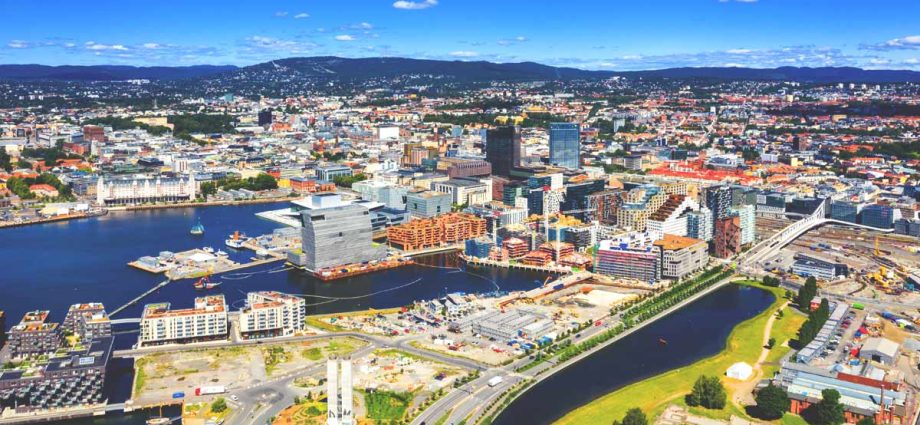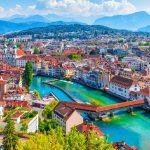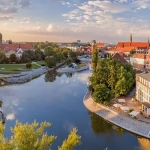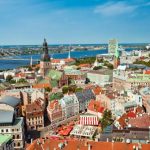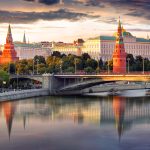Norway is a well-developed and forward-thinking Scandinavian country. Norway has a long, fascinating history. Which is known for its Viking ancestors specifically. Study in Norway has been recognized as a perfect destination for studies due to the renowned Aurora Borealis i.e, the Northern Lights as well as holding a good reputation for research as well.
Why study in Norway?
The reason for choosing to study in Norway is that it is a progressive country that strives to provide students with an extremely high-quality education. Study in Norway has got three types of varied public higher education institutions along with many private institutions. In Norway, the education system follows the Bologna process which means to gain a Bachelor’s, masters and doctoral degree.
The four of Norway’s universities were enlisted in the QS World University Rankings in the year 2019 in the top 500 groups. Amongst these, the highest-ranked is the University of Oslo, which has been placed at 135th position and was followed by the next highest-ranked university namely the University of Bergen that stood at 171st position.
The universities in Norway and scholarships in Norway offer a couple of fantastic qualities with the gorgeous scenery and the high standards of living as well. Also, it offers a great study environment for the ones getting Norway student visa.
About the country
Norway is located in the northwestern part of Europe, and it is officially identified as the Kingdom of Norway. The population of the country is nearly 5.3 million people and the population residing within the country is incredibly diverse. Apart from covering the mainland area of Norway, it also covers the island of Jan Mayen as well as the archipelago of Svalbard. Moreover, it shares borders with Finland, Sweden and Russia and has got a vast coastline also. Norway is benefitting from the mild climate due to the country’s proximity to the Gulf Stream.
Even though Norway is not a member state of the European Union, then also it maintains a close relationship with it. Norway was also found to be a member of the United Nations, NATO along with the Council of Europe, as well as being a part of the European Economic Area and the Schengen Area. Excluding the Middle East, Norway is the world’s largest producer of oil and natural gas. Additionally, the other prominent sectors are Lumber, minerals and seafood.
Cost of studying and living in Norway
The currency being utilized in Norway is the Norwegian Krone (NOK).
To study in Norway, Norwegian public universities do not charge any tuition fees even for international students. Particularly depending upon the area of studies, the applicant needs to pay a small fee each semester which ranges between NOK300 to NOK 600 for the students coming to study in Norway. This fee offers a membership to the student union, which will give access to health services, counselling, sports facilities and an official student ID card after getting a Norway student visa. This student card may help students in reducing the fare of public transports and might give discounts for museums and art galleries and exhibitions. There are very rare chances where the student needs to pay the tuition fees at public institutions and could only be of postgraduate level. If students choose a private institution to study in Norway, the fees structure might vary from institution to institution.
Living expenses for study in Norway purely depend on where you live in Norway. In this regard, the bigger cities might offer expensive courses to study, whereas smaller cities might give a reasonable cost. To study in Norway, on average, fees might range between NOK 9,500 to NOK 20,000. Students will be allowed to work 20 hours per week during term time and full-time allowance during the holidays.
Visa requirements
All the students who are willing to apply for a Norway student visa will have to obtain a visa prior to their arrival, which thus comes in the form of a student residence permit. Moreover, if the students from a European Union country, then he doesn’t need to take a Norway student visa before arrival, but will have to do so within three months of arrival in the country. If the student belongs to another country, then they need to have a residence permit before travelling to the country.
Languages
There are two official languages spoken within the country and these have variants. First is Norwegian having variants being Bokmal and Nynorsk. Sami is the second one with variants being Norther, Lule and Southern. Apart from these languages, there are three minority languages being spoken in the country, namely Kven, Romani and Romanes.
It is quite easy for degrees to be offered in Norwegian and English language at institutions in Norway. A very large minority also speaks good English. If the student is not studying in a native language, he/she will have to give proof of language proficiency. Moreover, if the student doesn’t meet the requirements, the university will offer language courses to help to improve the same. Some degree programs require advanced knowledge of the Norwegian language and these courses usually require a one-year language course for non-native speakers coming to study in Norway.

